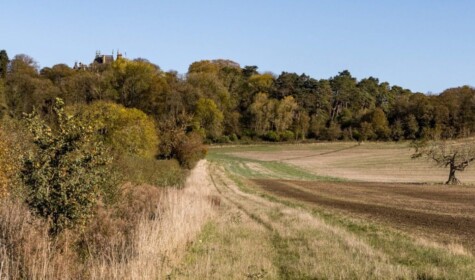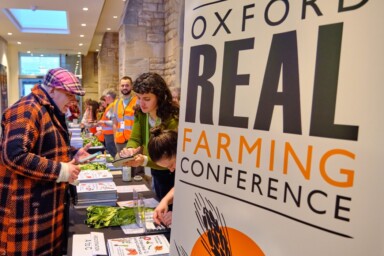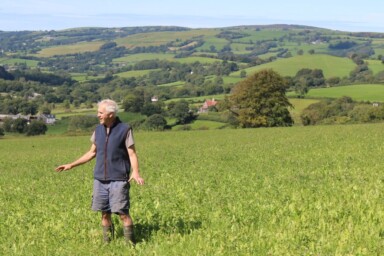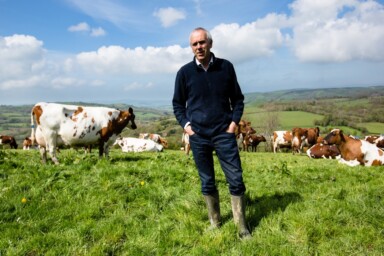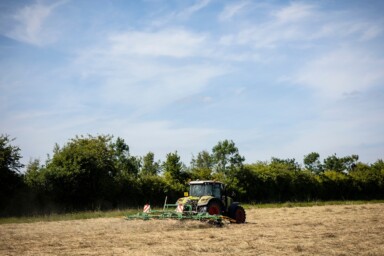What next for British agriculture: Farmers and food businesses reflect on Brexit
With only a few months remaining before our scheduled departure from the European Union, Brexit is looming large on the horizon. As talk of transition, hard borders and ‘no-deal’ spreads, we want to find out how farmers and food businesses across the country are feeling about the future of UK agriculture. What threats and opportunities do they see? Has their perspective changed since 2016? What specific issues are their businesses facing, and what has the UK Government done to address those concerns? We’ve invited farmers and food businesses across the UK to share their thoughts.
This week, Garth Clark, Estate Manager at Waddesdon, discusses the future viability of the estate post-Brexit.
The Waddesdon Estate was purchased by Ferdinand de Rothschild in 1874. Since then, family members have taken it in turns to enhance and nurture the aesthetics and conservational value of the estate. The team at Waddesdon is responsible for managing the farming operations on 1150 acres in the Fens, near Whittlesey and 5550 acres in the Aylesbury Vale, where they work closely with five tenant farmers, who are responsible for 1272 acres alongside an in-hand farming operation of 4150 arable acres, 950 of grass and 450 of woodland.
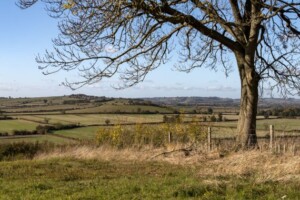
“Being the new incumbent has allowed me to step back and have an outsider’s perspective on what the next few years might look like at Waddesdon. The implications of Brexit will have an enormous impact on all our operations. If the financial impact is severe – as many of the reports suggest – then our ability to refocus, review, investigate alternative income streams, seize opportunities and diversify, will, I believe, be fundamental to the continuing success of the estate.
Our farming operations can no longer just be about mining resources in the name of productivity; they should be about rebuilding the real value of our land, soil, water and air, regenerating and fostering natural systems that provide nourishment at every level. Healthy soils are at the core of how I envisage our farming system – healthy soils mean healthy plants, healthy animals and healthy humans as well as less flooding, cleaner water and cleaner air. These are the natural assets we have to trade, in addition to the better food we will produce.
Once we have crystallised our baseline data and understand the true position of our most valuable asset: our soil, we will be working with people like the Sustainable Food Trust and Sectormentor to monitor our soil health. We can then learn what works, as we farm in a way that allows us to be robust and respond to external pressures while remaining agile. We must not assume we know what is best, but monitor and measure our impact as we go, so we don’t look back in ten years and wish we had done things differently.”
Sustainable Food Trust’s response
Garth’s concerns about the future viability of Waddesdon post-Brexit, mirror our concerns about the future of UK farming more broadly. Questions about how farmers plan and adapt their business models to meet the coming changes in our trading relationships are becoming critical. However, the future of farming that Garth outlines – one that is built on sustainable practices and ecosystem health – will allow us to integrate efficient and sustainable food production with practices that maintain and enhance natural and human capital.
To achieve the systemic shift towards more sustainable farming methods, we need to unlock the barriers to change and encourage farmers to adopt agricultural practices that serve the public interest, in terms of its impacts on both the environment and public health. Through the new Agriculture Bill framework, the UK Government has the opportunity to create the economic conditions where farmers are financially supported for adopting sustainable practices, which can then emerge as the most profitable and economically-viable way of producing food.
Just as Garth employs soil testing to monitor the health of his soils, Defra should require all farmers to submit on-farm data that could feed into an annual sustainability assessment. This assessment could be used to demonstrate eligibility for Government support and to enable the delivery of public goods effectively by helping Government to understand and monitor successes and failures. This assessment would go beyond soil health alone. For the assessment to be comprehensive, there needs to be a blend of specific targets, proxies and hard data collection methods, covering (but not be limited to):
- Soil microbial life
- On-farm educational courses for new entrants and apprenticeship offers
- Acreage of forage legume crops
- Levels of on-farm biodiversity
- Quantity of agrichemical application
- Hedgerow mileage and quality
- On-farm nutrient cycling
- High welfare management of livestock
- Cultivation of heritage and local breeds
- Greenhouse gas emissions
- Water infiltration rates
- Antibiotic use
The reporting of farm data would give the Government a better understanding of the national situation for each specific public good (such as biodiversity or net carbon emissions) and allow for more targeted interventions to help meet stated goals. Furthermore, farmers could benchmark themselves to show that they are delivering on their commitments and provide evidence of the improvement. Farmers should be encouraged to progressively increase their environmental commitments since all farms can become more sustainable, and the annual sustainability assessment would provide the necessary information and incentive to improve.
This series is not meant to endorse particular businesses or farms, but rather seeks to offer a variety of perspectives on the impact of Brexit on agriculture and the food supply chain.
Photos: Amateur with a Camera
